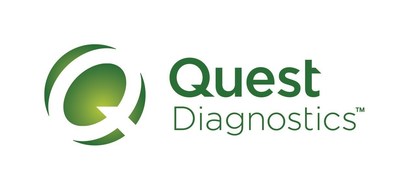FDA Grants Breakthrough Device Designation for Haystack MRD Circulating Tumor DNA Test from Quest Diagnostics
Rhea-AI Summary
Quest Diagnostics (NYSE:DGX) has received FDA Breakthrough Device Designation for its Haystack MRD® test, designed to identify minimal residual disease (MRD) in stage II colorectal cancer patients after surgery. The test helps determine which patients might benefit from adjuvant therapy.
The designation follows Quest's launch of a clinical laboratory-developed version of Haystack MRD in late 2024. The test utilizes circulating tumor DNA (ctDNA) technology to detect residual or recurrent cancer from solid tumors. The Breakthrough Device Program aims to accelerate development and review of medical devices for life-threatening conditions while maintaining FDA safety standards.
Positive
- FDA Breakthrough Device Designation received for Haystack MRD test
- Test already commercially available as laboratory-developed version since 2024
- Potential to expand test applications to various solid tumors beyond colorectal cancer
- Accelerated regulatory pathway through FDA's Breakthrough Devices Program
Negative
- None.
News Market Reaction
On the day this news was published, DGX declined 0.87%, reflecting a mild negative market reaction.
Data tracked by StockTitan Argus on the day of publication.
The new designation adds to growing evidence of the value of the Haystack MRD test for both clinical and pharmaceutical applications. It also aligns with a robust body of research supporting the potential of ctDNA-based MRD tests to detect residual or recurrent cancer from solid tumors. Quest introduced a clinical laboratory-developed test version of Haystack MRD in late 2024 and is broadening access for oncologists and pharmaceutical partners.
"We are committed to working with the FDA and our research partners to validate the use of Haystack MRD in a variety of solid tumors, building on this first designation for an early-stage colorectal cancer," said Dan Edelstein, Vice President and General Manager, Haystack Oncology. "Our goal is to deliver highly accurate, personalized monitoring of treatment response and recurrence to more patients, both in clinical care and in pharmaceutical trials, and this Breakthrough Designation brings us closer to our goal."
The Breakthrough Devices Program applies to certain medical devices and device-led combination products that provide for more effective treatment or diagnosis of life-threatening or irreversibly debilitating diseases or conditions. It is intended to provide patients and healthcare providers with timely access to medical devices by speeding up development, assessment, and review for premarket approval, 510(k) clearance, and De Novo marketing authorization, after undergoing the FDA's rigorous standards for device safety and effectiveness.
About ctDNA MRD
A growing body of research underscores the value of ctDNA MRD tests for identifying residual or recurring cancer in solid tumors. By detecting trace amounts of tumor-derived DNA in the bloodstream, ctDNA MRD testing can reveal molecular evidence of disease recurrence months before it becomes apparent through imaging or other conventional monitoring methods. This early insight can help clinicians tailor surveillance strategies, adjust treatment plans, and potentially intervene before disease progression becomes clinically evident. Nearly all oncologists (
About Haystack MRD™
Haystack MRD is a highly sensitive and specific liquid biopsy test designed by cancer genomic pioneers and liquid biopsy experts to uncover low levels of circulating-tumor DNA (ctDNA)—tiny fragments of DNA in the bloodstream that originate from tumor cancer cells that can signify residual, recurrent, or resistant disease in patients diagnosed with cancer. Used in multiple clinical trials and research studies with top institutions in the U.S., Canada, and Australia, and by clinicians at over 75 top cancer and academic centers and health systems, Haystack MRD is now available for clinical use as part of the leading oncology testing portfolio of Quest Diagnostics. Haystack MRD is also available for clinical trials as an investigational device by Haystack Oncology in laboratories located in
About Quest Diagnostics
Quest Diagnostics works across the healthcare ecosystem to create a healthier world, one life at a time. We provide diagnostic insights from the results of our laboratory testing to empower people, physicians and organizations to take action to improve health outcomes. Derived from one of the world's largest databases of de-identifiable clinical lab results, Quest's diagnostic insights reveal new avenues to identify and treat disease, inspire healthy behaviors and improve healthcare management. Quest annually serves one in three adult Americans and half the physicians and hospitals in the United States, and our more than 55,000 employees understand that, in the right hands and with the right context, our diagnostic insights can inspire actions that transform lives and create a healthier world. www.QuestDiagnostics.com.
![]() View original content to download multimedia:https://www.prnewswire.com/news-releases/fda-grants-breakthrough-device-designation-for-haystack-mrd-circulating-tumor-dna-test-from-quest-diagnostics-302536229.html
View original content to download multimedia:https://www.prnewswire.com/news-releases/fda-grants-breakthrough-device-designation-for-haystack-mrd-circulating-tumor-dna-test-from-quest-diagnostics-302536229.html
SOURCE Quest Diagnostics








